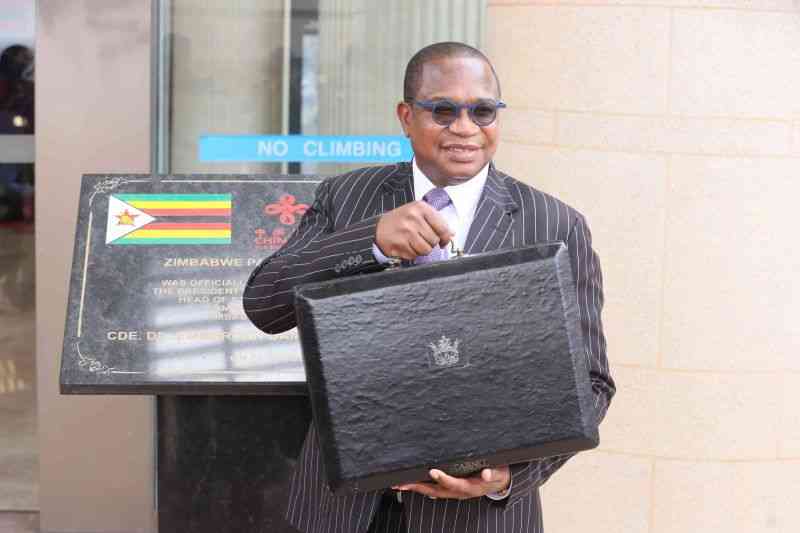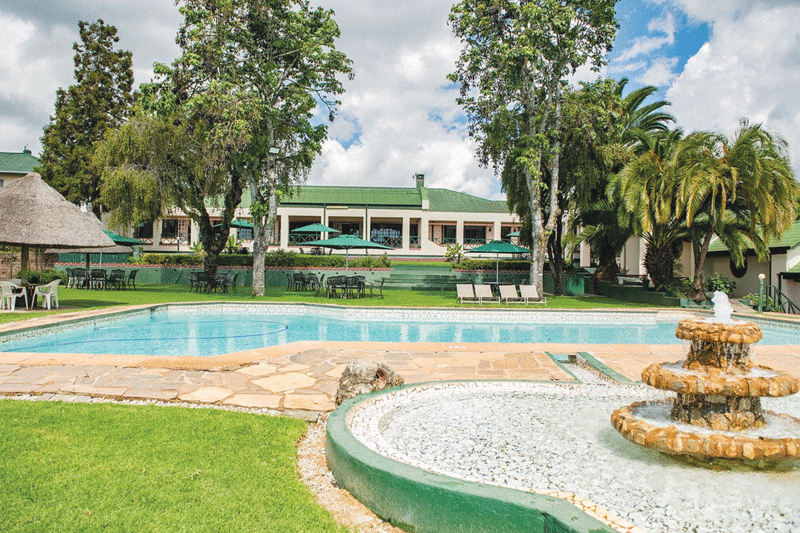
TREASURY will only be able to meet about 19% of next year’s infrastructure investment spending of US$9,08 billion, leaving the country’s critical infrastructure in a continued deplorable state, businessdigest can reveal.
Presenting the 2022 National Budget in November 2021, Finance, Economic Development and Investment Promotion minister Mthuli Ncube revealed that 2024's capital requirement would be approximately US$9,1 billion.
However, while presenting the 2024 National Budget last week, Ncube revealed that the Treasury would only be able to raise ZW$10 trillion to support infrastructure development programmes.
Using the November 30 official exchange rate of US$1:ZW$5 791, the amount set aside for 2024’s infrastructure spending translates to about US$1,7 billion.
This amount is only 19% of the 2021 figure, leaving next year’s infrastructure funding critically underfunded by US$7,35 billion.
This comes at a time when the country’s water and sanitation, road, rail, buildings, and health infrastructure are grossly depleted and deteriorating by the day.
“Underpinning our 2024 Infrastructure Investment Programme is the thrust towards ensuring the completion of ongoing projects, especially those that are at an advanced stage of completion, those that enable economic growth, reduce risk to life, and protect existing assets,” Ncube said in the 2024 Zimbabwe Infrastructure Investment plan.
“In this regard, overall support towards the 2024 Infrastructure Investment Programme, including devolution amounts to ZW$10 trillion, comprising fiscal support of ZW$8,1 trillion, development partner support of ZW$189,4 billion, loan support of ZW$322,2 billion, and statutory and other funding of ZW$1,4 trillion.”
- US$200K armed robber in court
- Massive ZRP vehicle theft scam exposed
- Building narratives: Chindiya empowers girls through sports
- SRC move, an exercise in futility
Keep Reading
Allocations topping the infrastructure development list include health, which was allocated ZW$2,09 trillion and transport, which received ZW$1,87 trillion.
Housing was allocated ZW$1,04 trillion, with other developments being allocated ZW$2,7 trillion.
The energy sector was allocated ZW$266 billion, water and sanitation (ZW$608,2 billion), ICT (ZW$235,4 billion), education (ZW$400,4 billion), and agriculture (ZW$722,2 billion).
As revealed in the 2024 pre-budget meetings, the allocations are far less than what the sectors actually need.
For example, with rising construction costs, the total national housing requirement of about 1,5 million needs more money, while the deplorable state of healthcare institutions needs a significant makeover.
“Underpinning our 2024 Infrastructure Investment Programme is the thrust towards ensuring the completion of ongoing projects, especially those that are at an advanced stage of completion, those that enable economic growth, reduce risk to life, and protect existing assets,” Ncube said.
A total of ZW$20,5 billion had been provided towards meeting some of the country’s obligations in the power sector related to the Zambezi River Authority legacy debt and tax obligations for the Hwange 7&8 expansion power project.
Through the road fund, a total of ZW$129,6 billion has been set aside towards the construction and upgrading of toll gates.
Ncube said ZW$56,4 billion was set aside for the rehabilitation of the railway system.
The railway infrastructure is old and antiquated.
Ncube said the government was willing to work with the private sector to raise much-needed resources through modernising funding models to broaden the investor base in flexible and innovative ways.
The minister said this would be done by addressing private-sector investor concerns, such as cost-reflective tariffs and improvements in the regulatory environment.
“With government funding increasingly being squeezed by other budgetary requirements, constructive collaboration with the private sector remains the most viable option for raising the resources needed to close the infrastructure gap,” Ncube said.
“In this regard, the government will expand and modernise funding models that broaden the investor base in flexible and innovative ways and address private-sector investor concerns, such as cost-reflective tariffs and improvements in the regulatory environment.”
He said the 2024 proposal for infrastructure would also focus on realigning policies and investments in appropriate ICT infrastructure and systems and the capacitation of institutions to support the envisaged digital economy ecosystem.











